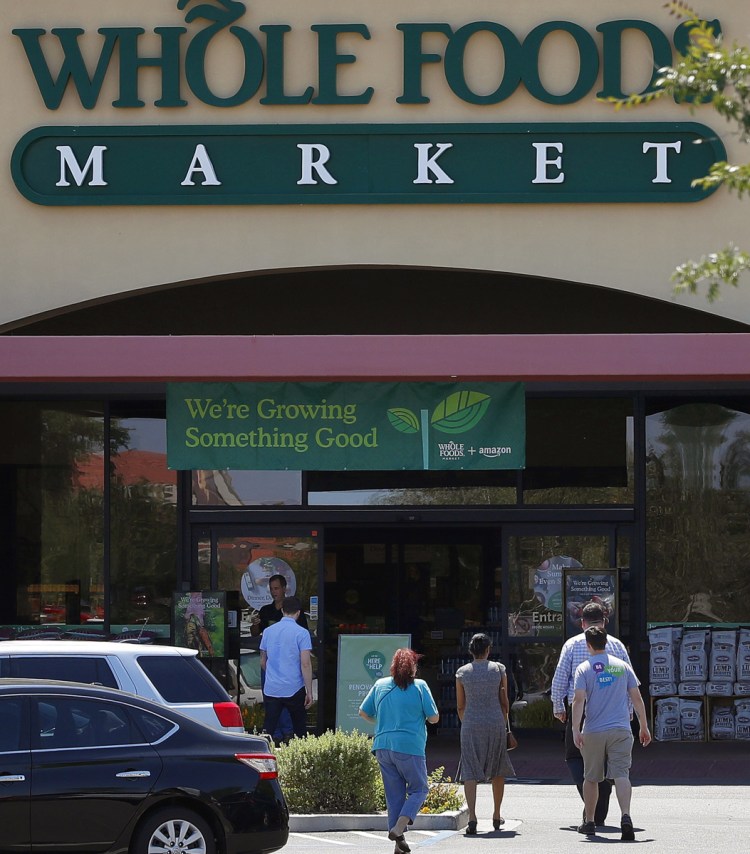Amazon’s blockbuster deal to buy Whole Foods Market for $13.7 billion last August was met with much fanfare about lower prices.
The internet giant, which has dominated the retail industry by undercutting its rivals, immediately slashed prices of some items after acquiring the notoriously expensive grocery chain. The cost of organic Fuji apples, for example, fell 43 percent on the first day of Amazon’s ownership.
The quick cuts prompted some observers to assert that Whole Foods had officially shed its pricey reputation. “The days of ‘Whole Paycheck’ are over,” declared the Washington Post, the newspaper that has the same owner as the grocery, billionaire Jeff Bezos.
One year later, though, shopping at Whole Foods will still cost you much of your paycheck – unless you’re an Amazon Prime member.
Whole Foods prices have fallen modestly overall, but the grocery is still more expensive than much of its competition, research shows. Whole Foods prices fell 2 percent year-over-year in July, according to Morgan Stanley.
A basket of 60 items including fresh and processed goods cost $195, roughly 13 percent more – or $22.49 – than at a typical conventional grocery store. Driving that premium were the grocery’s protein products – eggs, chicken and beef – which were 28 percent costlier than the competition’s, Morgan Stanley’s analysts found.
“When Amazon bought Whole Foods, everyone thought … ‘Now I’m going to be able to buy quality stuff at Whole Foods at Amazon prices,'” said Kevin Brasler, executive editor of Consumers’ Checkbook, which recently conducted its own grocery price study in the Philadelphia area. “They’ve lowered prices based on our most recent research, but not a lot.”
A Whole Foods spokesperson did not respond to requests for comment.
“When Amazon bought Whole Foods, everyone thought … ‘Now I’m going to be able to buy quality stuff at Whole Foods at Amazon prices,'” said Kevin Brasler, executive editor of Consumers’ Checkbook, which recently conducted its own grocery price study in the Philadelphia area. “They’ve lowered prices based on our most recent research, but not a lot.”
Send questions/comments to the editors.



Comments are no longer available on this story